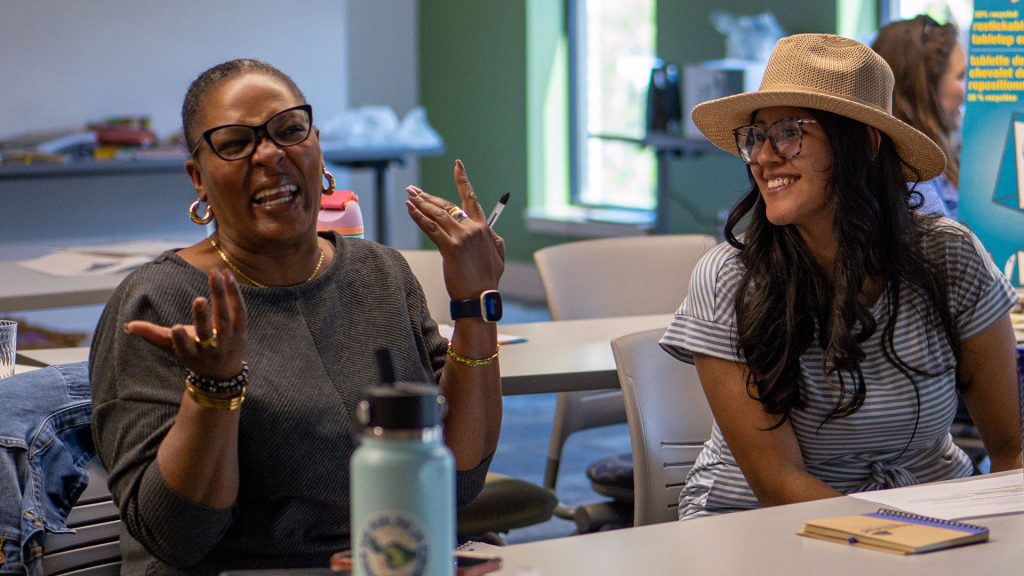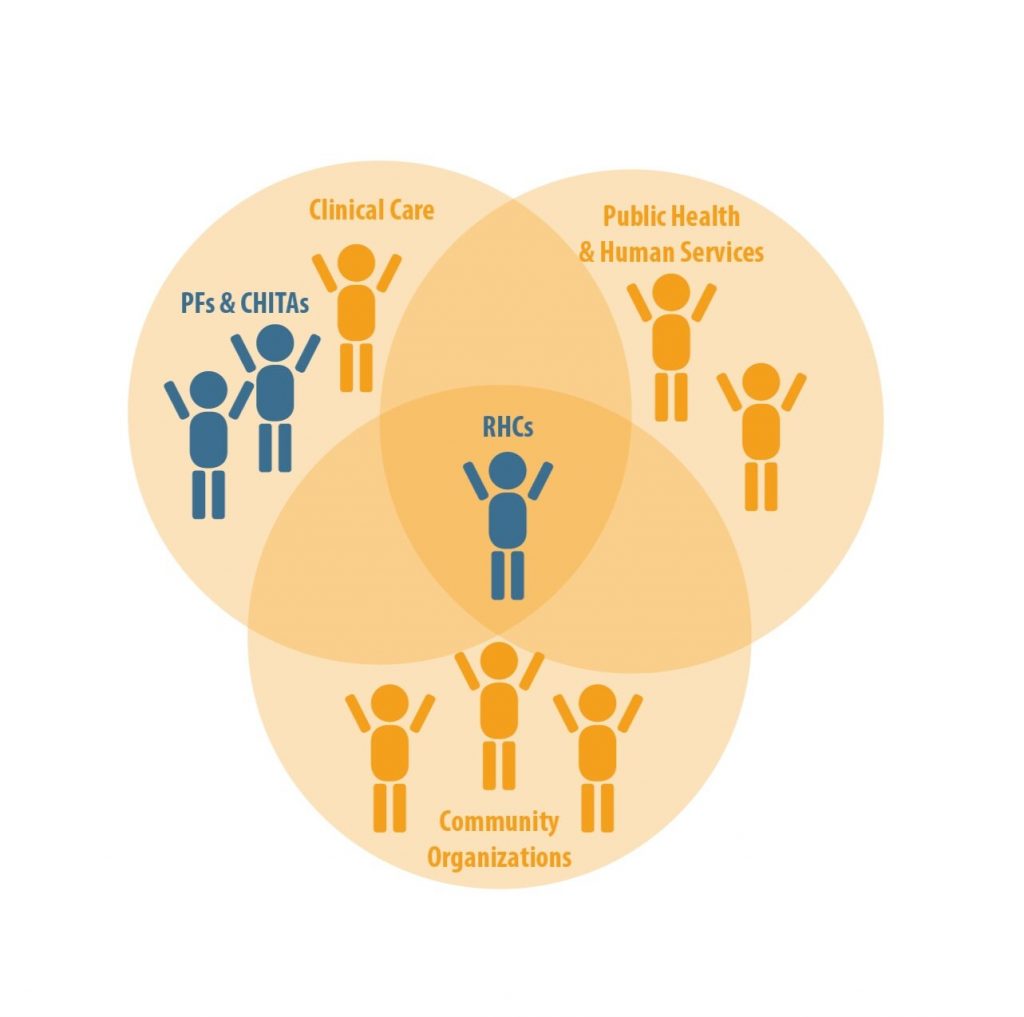
Colorado’s Regional Health Connector Program
Program Overview
Healthcare and service providers are increasingly looking outside their clinics to improve the health of their patients’ communities. Regional Health Connectors (RHCs) are a skilled workforce that is successfully developing and supporting these clinic-community linkages because they live, work, and play in the regions they serve. RHCs are hosted in every region of Colorado to support practices, organizations, and communities seeking to improve overall population health.

Regional Health Connectors Wanda Eiland and Okany Rivas share a laugh and connection at Colorado’s Regional Health Connectors Program Retreat
Learn About Our Impact
Our stories of impact highlight how RHCs are tackling health priorities in their communities such as revitalizing Indigenous food traditions, addressing substance use and stigma, centering culture as prevention, and more.
Frequently Asked Questions
Check out our frequently asked questions to learn how to connect with the RHC in your region, what their work looks like, how long the workforce has been in community, and what makes the program successful.
Supporting Practice Transformation
Colorado’s Regional Health Connectors support practice transformation efforts across the state. Learn how RHCs support practices in improving quality of care while enhancing the opportunity to succeed in new payment models.
Changing Systems in Colorado
Regional health connectors create and support conditions of systems change within health-care based systems across Colorado.
The “Why” Behind Our Work
Our vision, mission, and core values guide us in forging connections to improve health.
Health starts in the neighborhoods where we live, learn, work, pray, and play; and sustainable solutions must honor local diversity and assets. Our solutions are as unique as the things we face.
Connected, comprehensive care reduces duplication of efforts and efficiently elevates available resources to support the health of all people living in Colorado.
Approaching complex health challenges with curiosity will lead to innovation and improve the future of health and health care in our communities.
Primary care teams have a unique relationship with patients, equipping them to identify needs and provide referrals to supportive resources.
Many social and economic barriers to health (like access to transportation, education, housing, livable wage, etc.) combined with systemic and structural barriers (like historical trauma and racism), influence our health outside of a doctor’s office. We seek to build equity in access to opportunities and that promote health.
Local data, including stories of lived/living experience, paired with evidence-based studies can help us achieve better community health outcomes by amplifying assets and expertise drawn from our own experiences.
Learn More and Connect With Program Staff
Trailhead’s Senior Director of Programs, Tara Hardy, and Program Coordinator, Jami Hiyakumoto, support the RHC program at Trailhead. Connect with them at info@trailhead.institute.
The RHC program was formed with funding through the Colorado State Innovation Model (SIM) initiative and the EvidenceNOW Southwest (ENSW) project in 2015. The program began with two RHCs serving the Denver metro region and soon reached full force in 2017, hosting RHCs in each of Colorado’s 21 Health Statistics Regions.
Navigating Funding Changes
Since the end of the SIM and ENSW grant funding in June of 2019, the Regional Health Connector program has successfully continued at a smaller level with funding through the University of Colorado Anschutz Medical Campus. With a scaled-down second round of grant funding, RHCs’ roles shifted to part-time capacity beginning in January of 2020.
As the impacts of the pandemic increased across the state in spring of 2020, the foundational strength of the RHC workforce became increasingly evident. RHCs not only continued their critical role in developing and maintaining connections in their communities, but quickly shifted their work to support local COVID-19 response efforts. They achieved this successfully all while navigating a changing landscape for healthcare and service provision. Additionally, RHCs addressed increased social needs to serve regional partners and community members during a time of emergency.
2021 marked the fifth year of statewide operation for the RHC program, which continues to respond to local health needs and priorities through local priority projects and new behavioral health funding.
How RHCs Support System Transformation
RHCs serve as liaisons to physician offices, public health, and community organizations, and create partnerships that lead to healthier communities and healthier practices across the state. As liaisons, RHCs provide links among the various components of the healthcare delivery system. They focus on primary care, practice transformation organizations, the public health system, community organizations, state, county and city agencies, and the academic health system.
One function, for example, is to build relationships with primary care practices to make them aware of the resources available to help them evolve to new models of care delivery and compensation. RHCs are based across Colorado as a part of the Colorado Health Extension System. This multi-stakeholder collaborative creates a statewide infrastructure to support and coordinate practice transformation and to connect primary care to local public health and community organizations for community health improvement initiatives.





